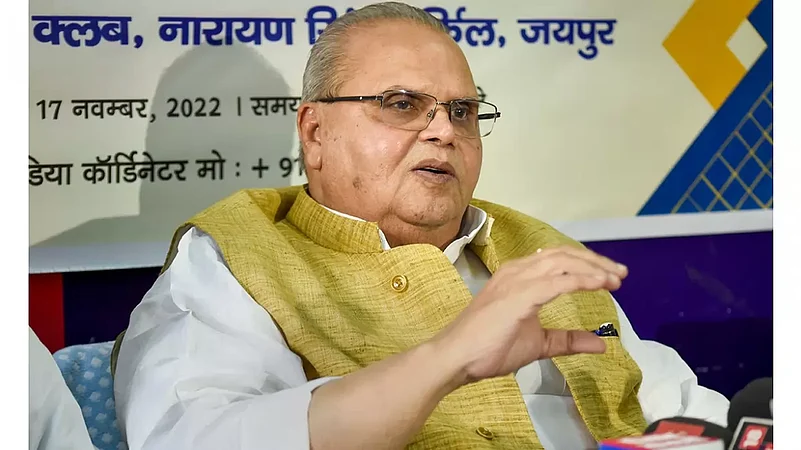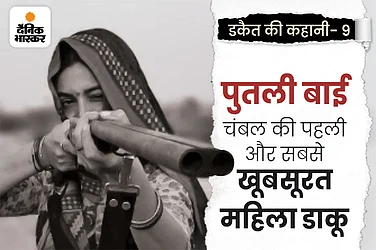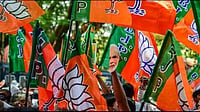Ahead of the abrogation of Article 370 on August 5, 2019, Satya Pal Malik, governor of Jammu and Kashmir behaved as if nothing was going to happen in
the restive state. As advisories and orders from the Centre government and Malik’s administration triggered panic in J&K with many fearing the government is preparing for the abrogation of Article 370, Malik dismissed such apprehensions as mere rumours.
“It’s normal. Only rumour mongering is going on. It’s a very routine thing here. If you sneeze at Lal Chowk, it becomes an explosion when it comes here. Unnecessary panic is being created by vested interests, especially some political parties,” Governor Malik said on August 3, 2019, two days in advance of the abrogation of Article 370.
Malik said he had talked to everybody in Delhi and nobody has given him any hint that they do this or that. “Somebody's saying there'll be trifurcation, somebody says Article 35A, 370...Nobody has discussed these things with me either the Prime Minister or Home Minister.”
While commenting on the government advisory that asked all the Amarnath Yatris and tourists to leave Jammu and Kashmir at once, Malik had justified
the advisory by saying, “A lot of terrorists are sitting across the Line to cross here and most of them are suicide bombers. If something happens, that
will have repercussions all over the country. We wanted to avoid that.”
But on August 5, 2019 morning, Kashmir woke up to a siege, communication blackout and arrest of thousands including three former Chief Ministers, Dr Farooq Abdullah, Omar Abdullah and Mehbooba Mufti.
A few hours later a resolution to repeal Article 370 of the Indian Constitution, which granted special status to the state of Jammu and Kashmir, was introduced and approved in the Parliament. The government also passed the Jammu and Kashmir Reorganisation Act, 2019, which downgraded and
divided J&K into two Union Territories: Jammu and Kashmir and Ladakh.
Malik is now saying that he was sent a letter on the night of August 4 and he only signed it on the morning of August 5, 2019, and sent it back to the
government. Supreme Court lawyer Advocate Gautam Bhatia argues as the primary legal instrument through which Article 370 was abrogated was Constitution Order 272, issued after the “concurrence” of the government of Jammu and Kashmir.
“As at the relevant time, J&K had been without an elected government for many months, the concurrence of the “government” meant, in effect, the concurrence of the governor – i.e., Satya Pal Malik.”
As Malik claims that the relevant papers were sent to him on the night of August 4 and that he was told to have them passed by 11 AM the next morning
on August 5, 2019, Bhatia feels that it goes on to suggest that he was simply informed that the papers needed his signature and that he acted accordingly. Thus, Bhatia says, Malik’s statement indicates that there was non-application of mind by him while giving consent which was necessary to “amend” Article 370.
In its petition against the abrogation of Article 370, the High Court Bar Association argued that the presidential orders CO 272 violate fundamental principles mandated by Article 370 as CO 272 altered the meaning of ‘Constituent Assembly’ in Article 370(3) of the Constitution to allow for the J&K legislative assembly to recommend the dissolution of Article 370. Malik assumed powers of the J&K Assembly at that time.
Former deputy Chief Minister and senior BJP leader Dr Nirmal Singh dismisses Satya Pal Malik’s revelations as a political gimmick. “Former governor of Jammu and Kashmir Satya Pal Malik was wielding both administrative and legislative powers as the governor of Jammu and Kashmir in August 2019. He gave ascent to abrogate Article 370 after due application of his mind. Now he cannot say this happened all of a sudden,” Dr Singh says.
He says Malik had remained at the senior positions in the BJP and he was aware of the BJP’s stance regarding Article 370. “By saying a letter came from the Home Ministry and he merely signed it, he wants to give the impression after four years that he was a mere puppet. In the run-up to abrogation of Article 370, all legal and constitutional requirements were followed and the former governor was not in the loop but was executing all legal and constitutional formalities,” Dr Singh says.
Dr Singh says Malik, after abrogating Article 370 hailed the move and was counting it as his achievement. “Now that he no longer is governor, he has
started imagining things,” says the BJP leader. Former Minister and Peoples Democratic Party leader Naeem Akhtar while arguing that Article 370 is more of a political case rather than a legal case, says Malik has weakened the government’s legal case. “First of all he himself was not the constituent assembly and could not be even if they considered the governor to be the legislature. All previous judgements of the Supreme Court even by a seven-member bench have held that the constituent assembly’s concurrence is indispensable. The fundamental principle of exercising a constitutional or administrative authority is due consideration, and application of mind. If the draft came and he signed it is invalid,” Akhtar adds.
But many see Article 370 as a “dead horse”, which will not be heard even by the Apex Court. “Even if the Apex Court will hear it and it will not reverse the course,” says a senior politician of a newly formed political party pleading anonymity. He says all Malik is trying to do is give some hope to the petitioners in J&K who went to the Apex Court against abrogation of Article 370. “But he does not deny that he didn’t give concurrence to abrogation of Article 370. Malik was one who gave concurrence to abrogate Article 370, but now he cannot resurrect it after four years saying he merely signed what was he told to sign,” he says.
Within 48 hours of the abrogation of Article 370, an NGO called People's Union of Civil Liberties (PUCL), the Jammu and Kashmir High Court Bar Association and National Conference, and other political parties filed petitions in the apex court challenging the dilution of Article 370 and the subsequent bifurcation of the state. The Apex Court admitted the petitions and on August 28, 2019 notice was issued by the Court but no stay was granted.
Later in September 2019, Sajad Lone’s Jammu & Kashmir People’s Conference filed a writ petition before the Supreme Court, arguing that the state of Jammu and Kashmir had a separate Constitution and the Parliament had “limited scope” to enact legislation for the state. “Therefore, by a Parliamentary Act, the powers given to the State of Jammu and Kashmir by its own Constitution could not have been abrogated by merely taking away Article 370.” In the petition, the party noted that the Presidential orders of August 5 and August 6 on Article 370 are “unconstitutional” as the concurrence of the popularly-elected state government was not taken.
While the Supreme Court has not heard the matter for the past three years, it will be seen how it will deal with Satya Pal Malik's revelations once it will hear the case.
Satya Pal Malik's Revelations And BJP: A Midnight Letter And Abrogation Of Article 370
Within 48 hours of the abrogation of Article 370, an NGO PUCL, the Jammu and Kashmir High Court Bar Association and National Conference, and other political parties filed petitions in the apex court challenging the dilution of Article 370

Satya Pal Malik addresses press
Satya Pal Malik addresses press
Published At:
WATCH
MORE FROM THE AUTHOR
PHOTOS
×

















